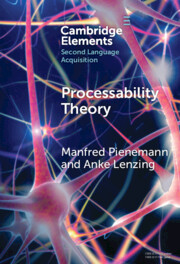Refine search
Actions for selected content:
1 results

Processability Theory
-
- Published online:
- 10 March 2025
- Print publication:
- 10 April 2025
-
- Element
- Export citation
